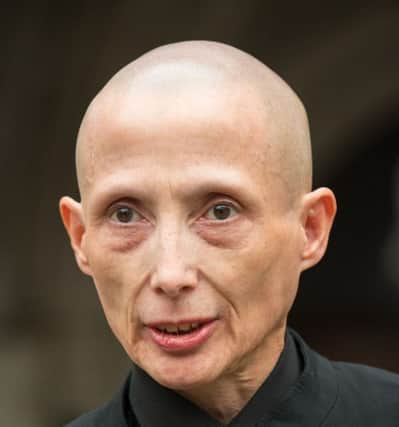Bid for gender-neutral passports fails after High Court ruling


Christie Elan-Cane believes the UK’s passport application process, which requires individuals to indicate whether they are male or female, is inherently discriminatory.
But a judge, who heard arguments in the case in London in April, dismissed Elan-Cane’s judicial review action on Friday.
Advertisement
Hide AdAdvertisement
Hide AdMr Justice Jeremy Baker said that although he was not at present satisfied that the current policy of Her Majesty’s Passport Office (HMP0) is unlawful, part of the reasoning for that decision was that a comprehensive review has not been completed.
Elan-Cane, who has fought for more than 25 years to achieve legal and social recognition for non-gendered identity, sees the issue of “X” (for unspecified) passports as a key focal point of the non-gendered campaign.
During the April proceedings, Elan-Cane’s lawyers challenged the lawfulness of the policy administered by Her Majesty’s Passport Office (HMP0), which is part of the Home Office, arguing that it breaches human rights laws.
He was asked to quash the policy and order that it be “reconsidered according to the law”.
The judge had also heard submissions on behalf of the Home Secretary that the case should be dismissed.
Kate Gallafent QC, for Elan-Cane, argued that the policy breaches the right to respect for private life, and the right not to be discriminated against on the basis of gender or sex, under the European Convention on Human Rights (ECHR).
She said: “For the claimant, obtaining and using a passport currently involves making a false declaration as to the nature of the claimant’s gender identity, which causes the claimant considerable distress.
“The lack of a non-gender specific passport option impacts on the claimant’s ability to obtain and use a passport on equal terms with persons who identify, and are identified, solely in terms of male or female.”
Advertisement
Hide AdAdvertisement
Hide AdShe told the judge that the impact of the passport office’s refusal to provide for X passports “affects not only non-gendered persons such as the claimant, but a broad section of the public” - including intersex and transgendered people and other individuals with gender dysphoria.
The policy requires Elan-Cane to “make a materially false declaration in respect of that core aspect of the claimant’s human personality or to forbear from holding a passport”.
She added: “If the claimant makes such a false declaration, the claimant must deny a fundamental aspect of the claimant’s identity.”
James Eadie QC, on behalf of the Home Secretary, submitted that the policy does not interfere with rights under the ECHR.
He argued that if the policy constituted an interference with Article 8 - the right to respect for private life - it was justified by the need to maintain an administratively coherent system for the recognition of gender, to maintain security and to combat identity theft and fraud, and to ensure security at national borders.
The judge ruled that the current policy of HMPO not to permit Elan-Cane to apply for or be issued with a passport with ‘X’ in the gender/sex field did not amount to an unlawful breach of the right to a personal life under article 8 of the European Convention on Human Rights (ECHR).
He stressed his conclusion was reached on current evidence, and said Elan-Cane “will be entitled to scrutinise with care the results of the Government’s current review, which will be required to be undertaken without any undue delay”.
The judge added: “I have no doubt that the Government will have well in mind the range of factors which will be required to be considered in the course of that review, which one trusts are now better understood than they may have been at an earlier point in the history of the Government’s consideration of them.”
Advertisement
Hide AdAdvertisement
Hide AdHe said: “It will be necessary for the Government to consider to what extent if any, in an age of increasing social and legal awareness and acceptance of the importance of issues relating to diversity and equality, the recording of an individual’s sex and/or gender in official and other documentation is justified.”
The judge said: “It seems to me that once the review has occurred, then depending upon its outcome and whether and to what extent the identification of those who consider themselves to be non-gendered is legally recognised, the strength of the focused challenge in the present case may be required to be reassessed, in order to determine whether the current policy of the HMPO in relation to the issuing of ‘X’ marked passports continues to be justified.”
